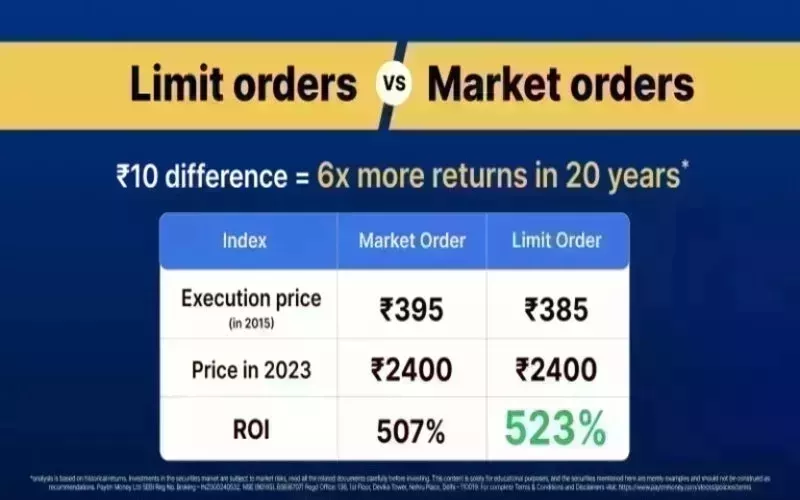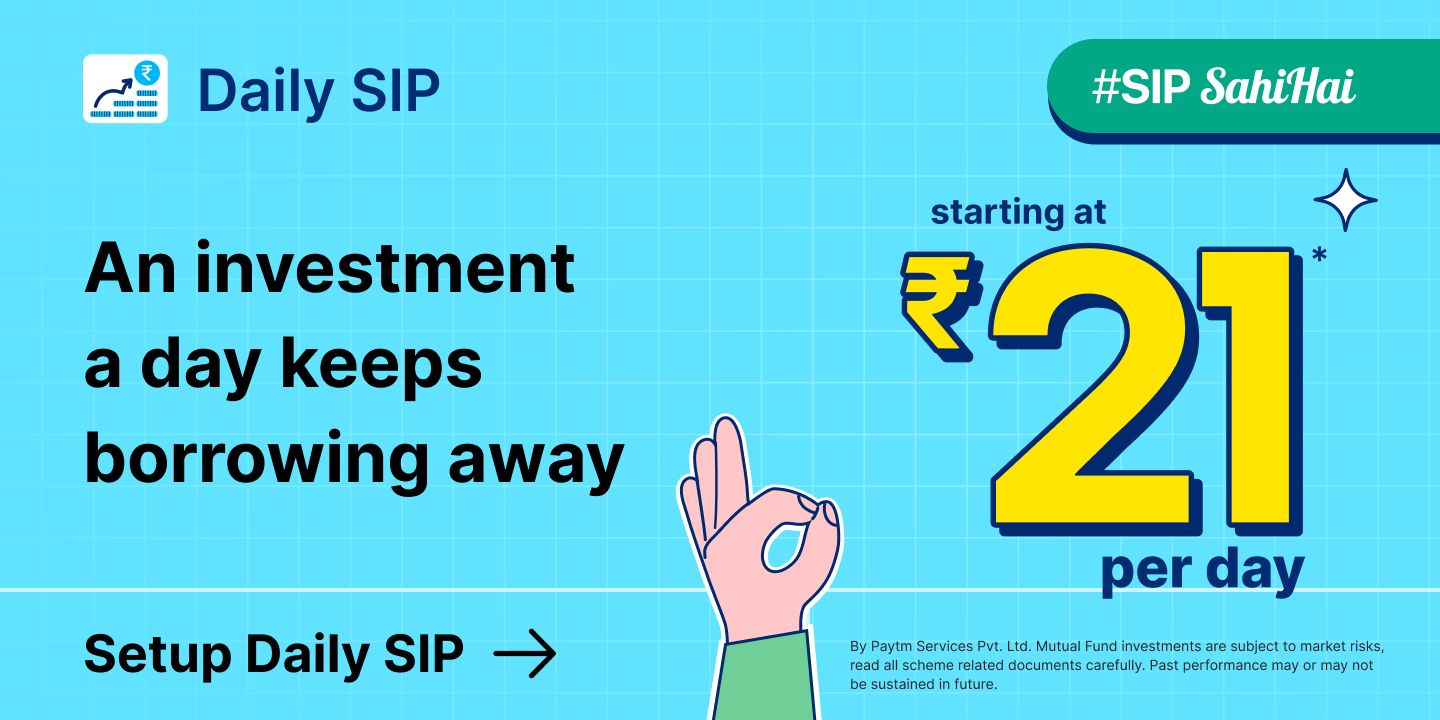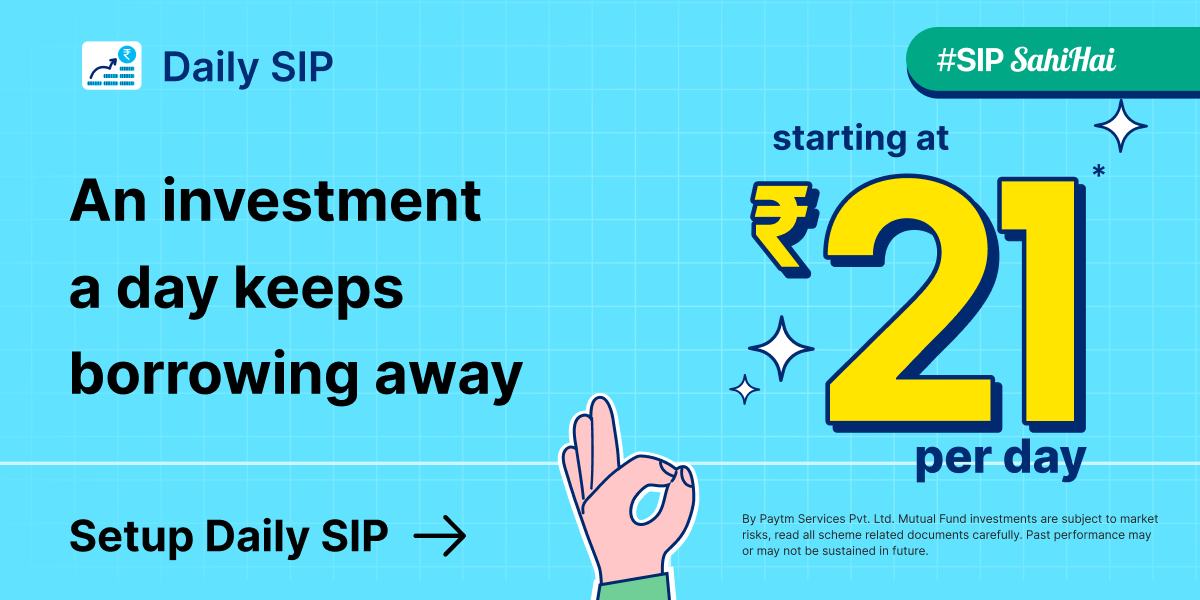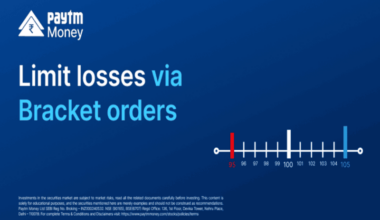Let me tell you about someone I recently met. Let’s call him Mr. X, an experienced trader whose journey through the financial markets is nothing short of inspiring. Mr. X’s story offers invaluable insights into the world of strategic decision-making. Our conversations revealed a treasure trove of wisdom that has not only shaped his trading career but has also left a lasting impact on many others.
Key Takeaways
- Market orders are executed at a price dictated by the market, not by the investor
- Limit orders give you the power to define the order price and exercise patience in a dynamic and volatile market
- With limit orders, you can manage market risks like daily volatility, freak trades, swinging market prices
- Limit orders have a highly positive impact on your portfolio in the long run
In his early forays into trading, Mr. X was drawn to the charm of rapid market orders and the persuading promise of quick profits. The adrenaline rush of making split-second decisions in a dynamic market was undeniable, but it came at a cost – one he was all too willing to pay to make profits. It wasn’t long before he recognized that chasing a positive P&L without a robust risk management strategy was like venturing into uncharted waters without a compass. And so began his journey to redefine his approach – a journey that would unveil the power of limit orders.
Through the lens of limit orders, Mr. X embraced a new perspective characterized by patience and precision. No longer swayed by market volatility, he embarked on a journey where well-calculated buy and sell prices took center stage.
Limit orders proved to be a powerful tool that empowered him to maintain discipline and exercise conviction. Unlike a market order, which executes at the prevailing market price, a limit order specifies a price at which you are willing to buy or sell. This creates a clear entry or exit strategy, based on predefined levels that you have thoroughly evaluated.
As I delved into this concept, I realized its pivotal role in shaping trading strategies. The choice between market orders and limit orders takes on a new dimension when considered in light of intraday volatility. The ability to swiftly respond to price shifts becomes crucial for effective decision-making.
For instance, take a look at this chart of SBI throughout just one day. Bouncing between 572 and 576 all day long.

Mr. X shared an analogy that perfectly captures this phenomenon. He likened stocks to living organisms that breathe – opening at one price, experiencing highs and lows, and eventually closing at another. This continuous flux is not arbitrary; it’s a reflection of the ever-changing market landscape.
I wanted to dive deeper into the theory and validate if limit orders actually had any impact in the long run. Take a looked at the following example:
Imagine you were considering an investment in Reliance in 2015 looking at its fundamentals and a promising future outlook. As of March 2015, there could be two outcomes based on the type and price of your order.
- Market Order: you go ahead and invest into reliance at the available price (395 at the time)
- Limit Order: you do a fundamental analysis and come up with a fare price of 385 at which you place an order
You may think, a difference of 10Rs will hardly have an impact! But fast forward 8 years:
| Market Order | Limit Order | |
| Execution price in Mar, 2015 | 395 | 385 |
| Price in 2023 | 2400 | 2400 |
| ROI | 507% | 523% |
If you were to let this grow, do you know what the real difference will be between these 2 investments? In 20 years*, the first approach will make your investment 91x and the second will make it 97x. That is the power of compounding.
*Assuming the same rate of return YoY . Disclaimer: The securities are quoted as an example and not as a recommendation
Tip: Given the nature of long-term investments, if you wait for an even better entry point if the stock’s price were to dip over the next few days. You can make even better returns. This can be done easily using GTT (Good till triggered) orders – know more @ Good Till Triggered (GTT) Orders On Paytm Money
Placing a limit order also makes you focus on evaluating the fair valuation and precisely determining the best entry point for a particular stock. This process, intrinsic to decision-making, lies at the heart of fundamental analysis.
With the introduction of limit orders, Mr X found the tools to exert control over his trades – to define the boundaries of each transaction by specifying the maximum price he was willing to pay or the minimum price he was prepared to accept.
As our conversations continued, Mr. X recounted instances of market upheavals like Freak trades (an erroneous trade where the price hits an abnormal level for a fraction of a second due to manipulations, human errors, or technical glitches), that rattled even seasoned traders. For example, in 2022 RIL June futures hit an unusual high of ₹3,051. Which was a 22% premium on the contract’s opening price of ₹2,500 <Source>. These freak trades have the potential to wipe out a major chunk of the capital for market order trades. These narratives reinforced his steadfast belief in the potency of limit orders. He recounted how traders who solely relied on market orders suffered substantial losses due to sudden price swings, while his vigilant focus on strategic entry points saved him from such shocks.
(Disclaimer: The securities are quoted as an example and not as a recommendation)
In conclusion, the choice between limit orders and market orders transcends mere execution methods. It’s a decision that speaks to a trader’s philosophy, approach to risk, and commitment to discipline. The power to define the order price lies squarely with the trader who employs limit orders, enabling them to master the twin challenges of risk control and patience. While market orders might offer speed, the true essence of trading lies in the mastery of managing risk – for in doing so, profitability naturally follows.
Here’s a quick guide on- How you can place limit and other types of orders on Paytm Money.
Disclaimer: Investments in the securities market are subject to market risks, read all the related documents carefully before investing. This content is purely for information purpose only and in no way to be considered as an advice or recommendation. Paytm Money Ltd SEBI Reg No. Broking – INZ000240532, Depository Participant – IN – DP – 416 – 2019, Depository Participant Number: CDSL – 12088800, NSE (90165), BSE (6707) Regd Office: 136, 1st Floor, Devika Tower, Nehru Place, Delhi – 110019. For complete Terms & Conditions and Disclaimers visit: https://www.paytmmoney.com/stocks/policies/terms








